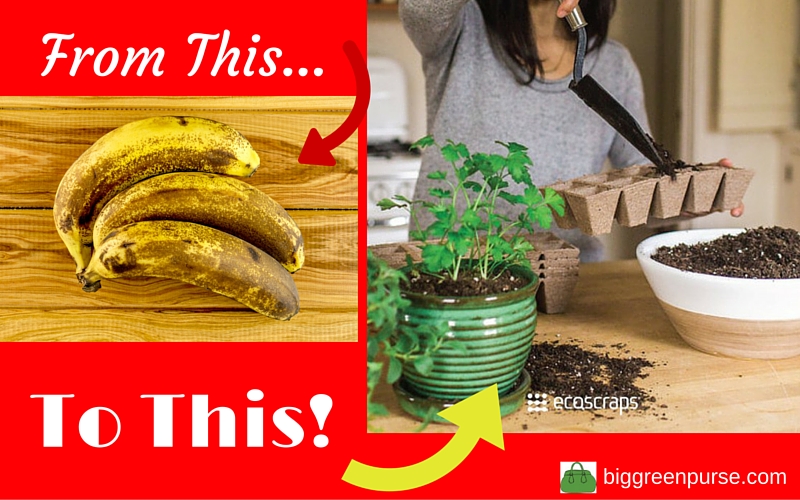
Food waste is costing you, and America, a lot of money.
As a nation, we waste 40% of the food produced.
As consumers, we throw away at least 30% of the food we buy at the grocery store.
Here’s what that means: if you spend $100 on groceries, you’ll end up throwing $30 worth away.

EcoScraps believes that’s wrong, and they’re right! That’s why we’ve teamed up with them to introduce you to the smart way they’re turning wasted food – including bananas – into potting soil and other garden products. They’re also offering a $50 WalMart Gift Card to one lucky Big Green Purse reader so you can purchase your own EcoScaps stuff. But more on that later!
Disclosure: This blog post includes links sponsored by EcoScraps and their preferred distributor, Wal-Mart.
How Many Bananas Do You Waste? What About Lettuce? Grapes?
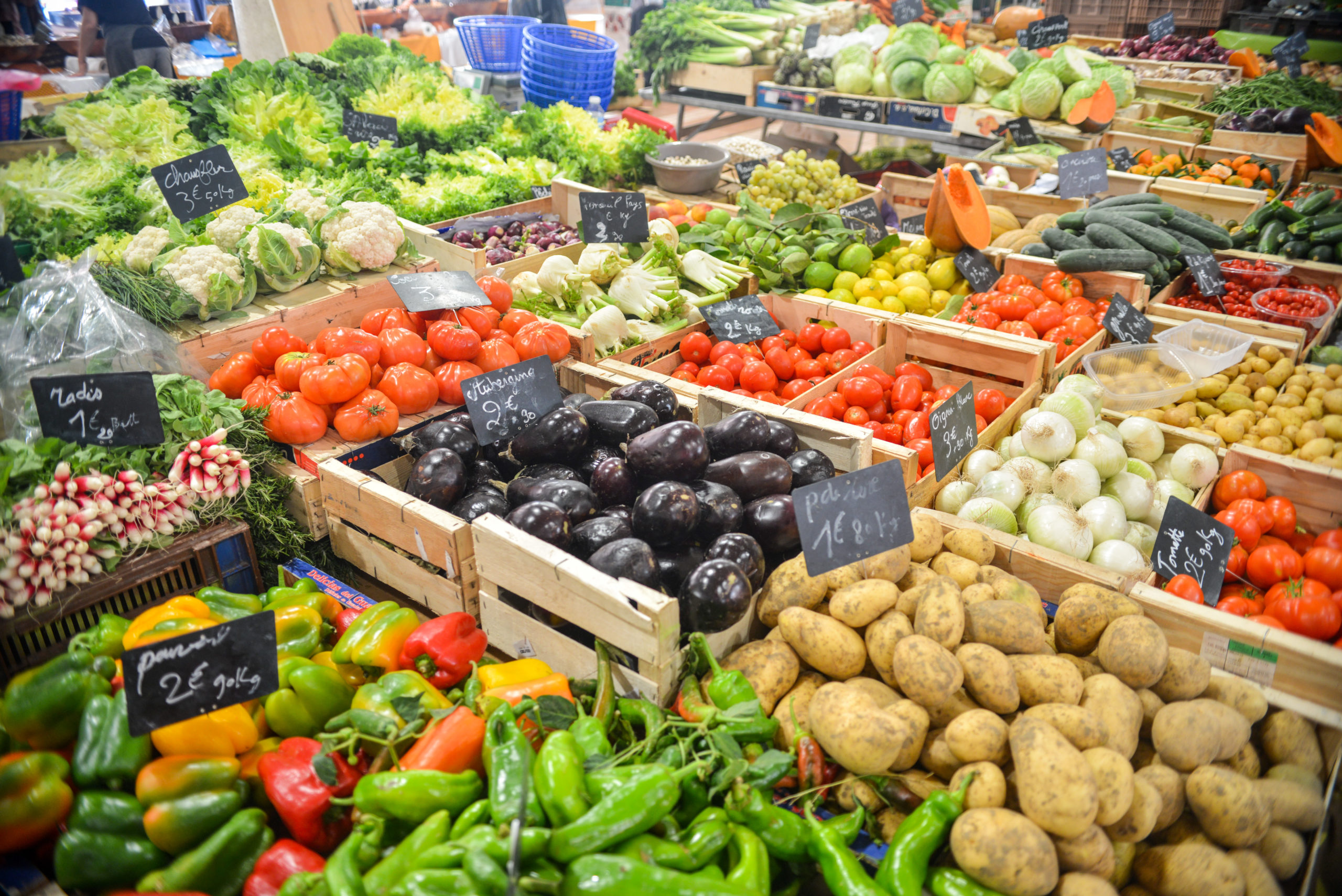
You may be so used to throwing away food that you don’t even think about it anymore. But you should. Consider this*:
⇒68% of all salad grown for bagged salads ends up wasted, with the majority of waste happening at home
⇒40% of apples end up as food waste Just under half of all bakery items are wasted
⇒25% of grapes are wasted between the time they’re picked off the vine to whenever they make it to your fruit bowl, with the majority of waste happening at home
⇒20% of all bananas are wasted
⇒One in 10 bananas bought by customers end up in a bin
Food Waste Causes Climate Change
All this food waste takes a big toll on our pocket books. But it’s also contributing in a major way to climate change.
At the front end, think of all the fossil fuels (and water) used to produce, harvest, process and get that food to your shopping cart or dinner plate. Burning especially oil to operate farm machinery and transportation systems generates tons of carbon dioxide that are adding to global warming.
But on the back end, all the food that’s thrown away – enough to cover 4,444 football fields a year – ends up in landfills.
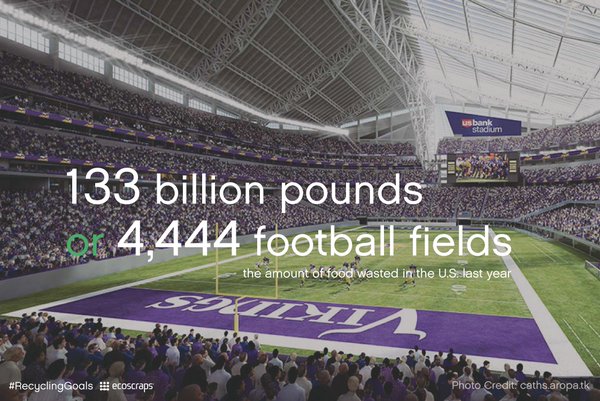
As landfilled food waste starts to decompose, it produces methane, a powerful greenhouse gas that’s 20 times more harmful than carbon dioxide (CO2).
EcoScraps to the Food Waste Rescue
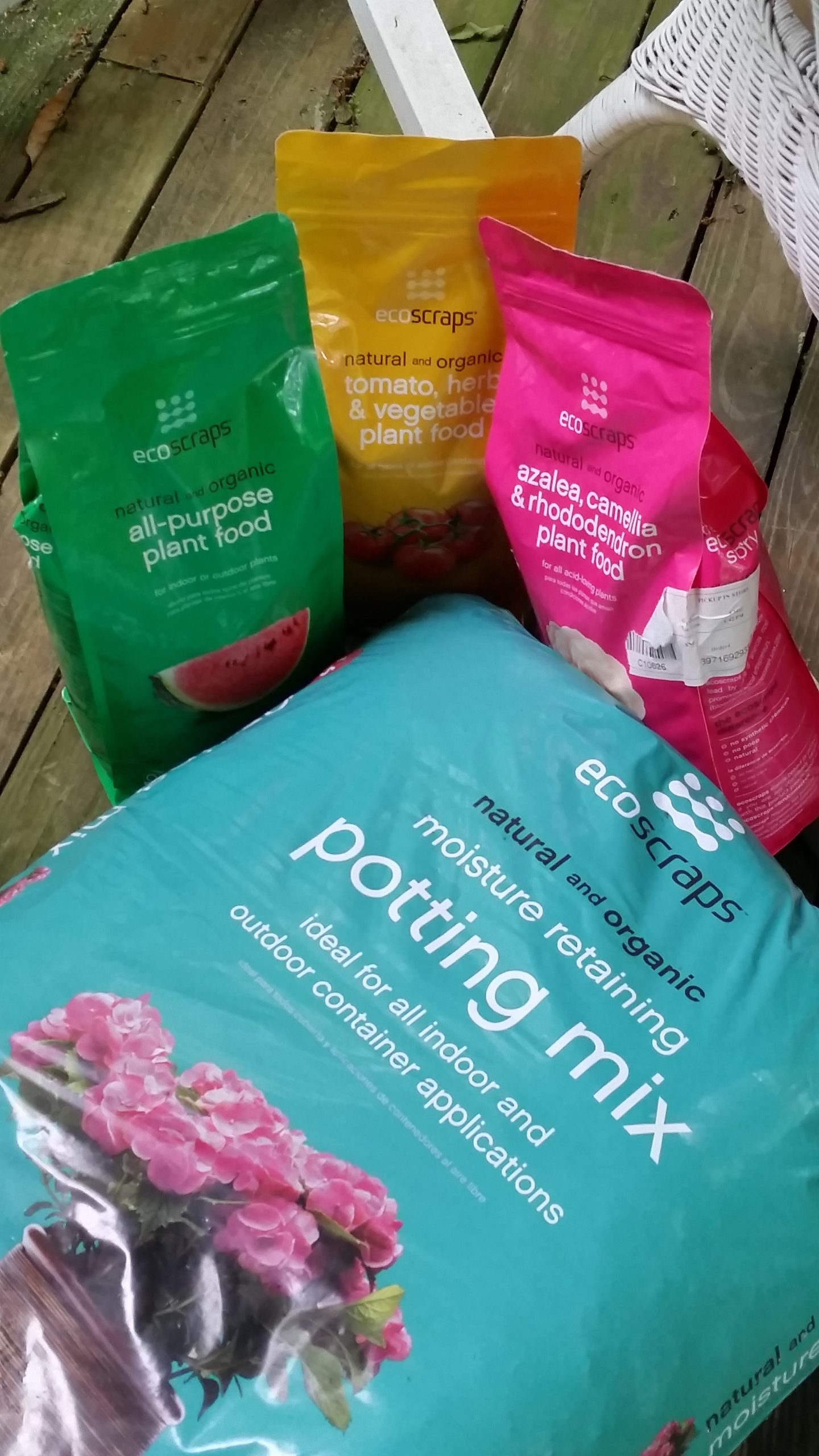
Since 2010, EcoScraps has been working to be part of the solution by reusing food waste and keeping it out of landfills. “We want to make sustainability mainstream,” says the company.
And that’s exactly what they’re doing.
Recycling 15 million pounds of food waste is equivalent to keeping 500,000 cars off the road for an entire day.
Between 2011 and 2015, EcoScraps recycled 75 million pounds of food waste, and they project recycling another 75 million pounds in 2016 alone.
What are they doing with it?
Turning it into potting soil, compost and other garden products, including:
All Purpose Plant Food
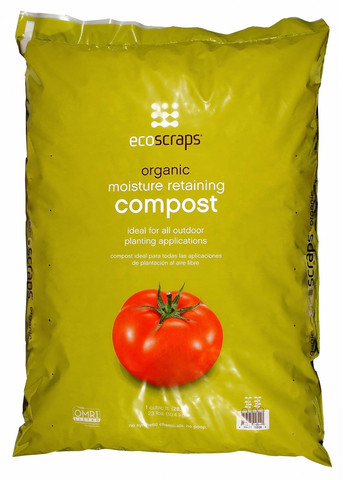 Azalea, Camellia and Rhododendron Plant Food
Azalea, Camellia and Rhododendron Plant Food
Compost Accelerator
Potting Mix
Raised Bed Garden Mix
Rose & Flower Plant Food
Tomato, Herb & Vegetable Plant Food
Moisture Retaining Garden Soil
All Purpose Liquid Fertilizer
Moisture Retaining Compost
I used EcoScraps’ Moisture Retaining Potting Soil to pot up the impatience and begonias I keep on my porch. Don’t they look beautiful?
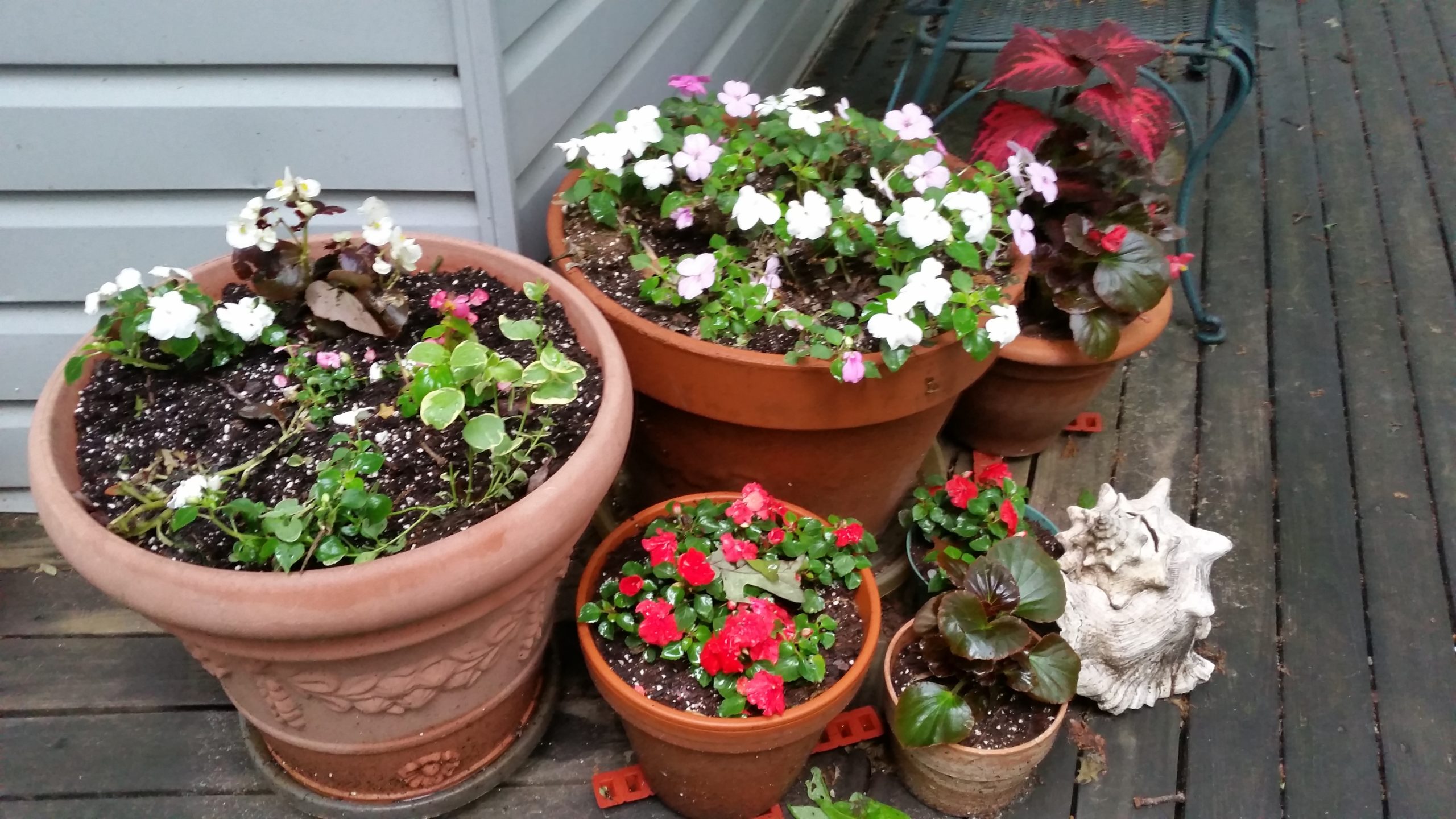
What Can You Do to Reduce Food Waste?
√First and foremost, buy less food! Rather than buy as much as you think you need, realize you can buy 30% less – if you eat it all. Be smarter about what you buy and keep track of it so you eat it all.
√That goes for restaurants, too. When you dine out, order smaller portions, or share one large portion so you waste less. Bring home the leftovers so the restaurant won’t toss them in the trash.
√Change your shopping habits. Bagged salad, for instance, is one of the number one foods wasted. Buy bagged salads only on the days you plan to use them.
√And of course, choose products like EcoScraps that are made from food waste that’s been recycled.
What other ideas do you have for reducing food waste? Please share!
NOTE: Sponsors like EcoScraps enable us to bring you expert content at no cost to you. Our editorial opinions remain our own.
*Source – Packing News
WIN A $50 GIFT CARD!

EcoScraps wants to make it easy for you to try their product, so they’re offering one lucky Big Green Purse reader a $50 Gift Card, which you can use at any WalMart store. For a chance at winning the card, please leave a comment in the comments section below telling us what you are growing in your garden this year and why you think gardening organically is so important. The winner will be chosen at random.
Please leave your comment below by Noon ET on June 28.


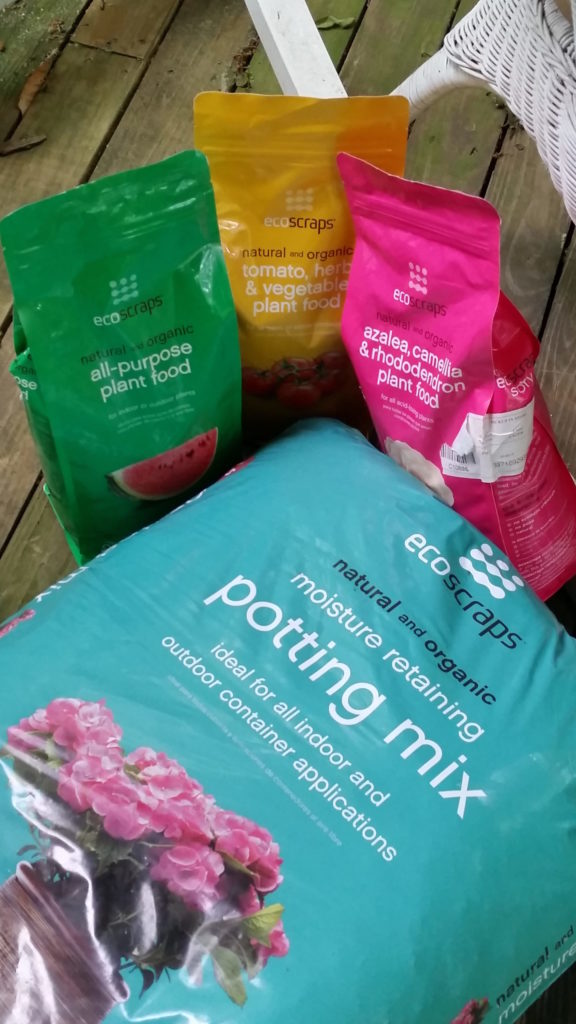



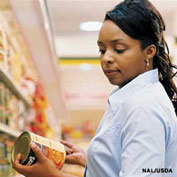


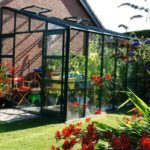


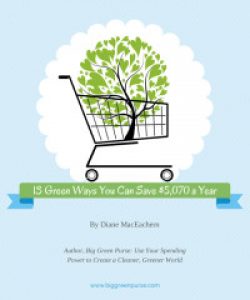


22 thoughts on “Why Does EcoScraps Turn Old Bananas Into Potting Soil, Plant Food?”
I have an all organic, native plant garden at my school that I started with my students in gardening club! I do it to teach them the importance of protecting our environment and ourselves from harmful chemicals, and to instill in them a love of nature. We do not have food growing yet but we hope to get there soon!
even if organic food isn’t higher in nutritional value, it is still better for the soil and wildlife. living with the california drought, i am only growing food that doesn’t require much water. zucchini grows like weeds here, so it’s a no brainer. roma tomatoes do pretty well, as well as onions and a few herbs. no bell peppers this year or any melons.
I am growing herbs, tomatoes, cucumbers, kumquats, and aloe in my patio garden this summer. My challenge is how to squeeze more plants into my tiny space. Eating clean organic food is top priority to me and my family. It’s great for human health, animal health, and the health of our planet. Let’s all bring back the “victory garden”; growing organic food in our backyards (or tiny patios in my case) is a “win” for all of us!
We are so fortunate to live in an area where organic gardening is valued. By gardening organically I can be assured that there is no pesticide residue on the food I grow for us or to share.. I have an extensive herb garden that I have had for years and love knowing I can just pick fresh herbs for cooking and not have to worry I can let my 2 year old grand daughter pick blueberries, strawberries and cherry tomatoes and eat them right then. I have a worm bin which I use to compost my food waste and our local yard waste recycling lets us put food waste in the bins for weekly pick up. Organic gardening is so important for the environment.
Wow! That’s so impressive. I tried a worm bin indoors, but had a hard time keeping the poor things alive. It sounds like you’re really making a difference!
Thank you Eco Scraps for caring. My husband and I are vegetarians. We recently moved and are finally able to have a garden. We are growing tomatoes, squashes, beans, beats, carrots, radishes, and lettuce, along with some herbs. It is especially important that we garden organically, lawn included, because we live near a river. We so enjoy the outside.
I am doing a straw bale garden this year because we just moved to a new house and a bunch of raised garden beds were not in the budget. We sourced organic straw bales and we planted: carrots, cabbage, radishes, lettuce, rainbow chard, rosemary, lavender, basil, thyme, white potatoes, red potatoes, watermelon, 4 kinds of pumpkins, beets, kohlrabi, peas, beans, snow peas, 4 types of tomatoes, zucchini, cukes, squash, bell peppers, and jalapenos. Everything is doing great! For us organic is the only option because it is the healthiest to eat and if you are going to invest the time and money in a garden then I am going to do it right. Organic all the way.
Wow – you’re an inspiration. I’ll be checking out your blog at naturemoms.com to see how it’s all going. Thanks for the ideas about straw bale gardening, too.
My sisters and I have a nice big garden, 20 hens and 6 beehives growing on the family homestead (located on our parent’s land), and we also split up the list of veggies, fruits and herbs that each of us grow in our own gardens. It’s all organic, no toxic pesticides, and EcoScraps sounds like exactly what we need!
Wow! 6 beehives!! I’m so jealous. Thanks for all your efforts – and those of your sisters – to grow organic and keep our pollinators happy.
I’m not much of a gardener, but my kids learned at school. Now that there are so many great organic options, especially this compost, now might be the time to start one in my backyard! I love how you can recycle food and it’s good for the bees, the environment and – if we grow produce – my own hungry minions 🙂
So true (and I love the image of your hungry minions!). Anyway, it’s never too late to start, even with container gardening on the back porch.
I started a flower garden this year and am trying tomatoes, I think it’s great to grow and buy local. Organic is even better. If my tomatoes grow good I will try more next year. 🙂 My neighbor has chickens and sends over a dozen eggs to us here and there. 🙂 So sweet of her.
I’m starting off small because it’s my first time doing it myself and I don’t want too much to handle. tomatoes and potted herbs -so far so good. Love this product have a compost bin near my garden. Use this with donated organic soil from neighbors. Thanks
Wow – you have neighbors who donate organic soil? That’s pretty amazing. Good luck.
I wish I had a neighbor who could send me eggs! 🙂 You’re smart to start with a couple of plants and see how it goes. Let us know!
I’ve finally talked my husband into NOT using things like Round-Up to kill weed, instead we use vinegar to spray the weeds in our driveway. I HATE commercial weed killer, you never know what you doing to the earth.
And I already compost all my kitchen scraps, even the seeds from avocados. I don’t compost meat or bones though, I’d heard that you shouldn’t, plus we have Bears, Fox, Mountain Lions, Coyotes, etc. (we live in the Mountains of WV). Anyway, I would love to try your Ecoscraps…anything to help Mother Earth!!!
I’m glad to hear about the vinegar spray. Mostly, I just pull weeds by hand. For composting meat or bones, your compost would have to get pretty hot, and yes, in the meantime it might attract some critters. Thanks for caring about Mother Earth!
Thanks